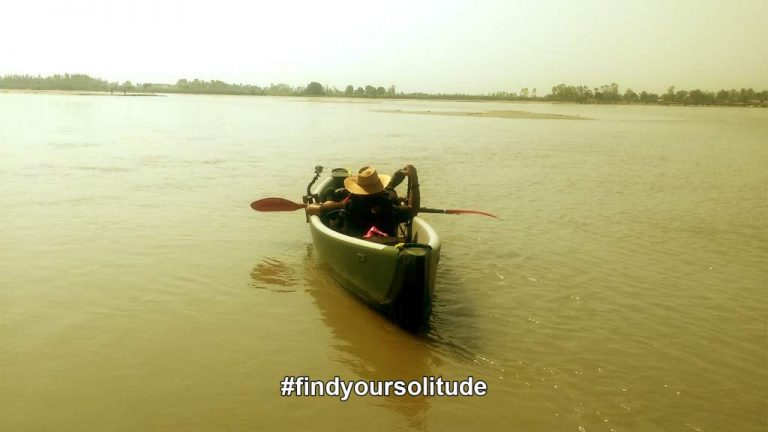Happiness is an illusion
Society seems to be obsessed with the pursuit of happiness. Constantly. At every stage. At every moment. It tends to guide our every decision. Whether it is the next job, the next meal, the next relationship, the next car, the next holiday. When one tends to peel off the onion, happiness is a construct that seems to be related to keeping up with the Jones’. What makes one happy is a bigger car, a bigger house, a bigger pay check, a more exotic holiday. Something that makes us feel better off than the people we are either surrounded by or competing against. It is a sense of jealousy and envy that defines what makes us happy … or sad. It is a very material world and what makes us happy is a very illusory thing. Indeed, happiness itself is illusory. Let me give you an example.
I am feeling a little low, maybe a splitting headache is becoming debilitating. I am lying in bed, lights off, sleep though welcome is still far away. God is not in His Heaven. The doorbell rings. My blood pressure shoots up wondering who it is. My degree of happiness plummets even further as I get up gingerly and walk across the room to open the door, silently cursing whoever it is on the other side of the door. As I open the door I find a long lost friend standing there. Maybe a loved one. Maybe a parent. Or a child. Suddenly, the migraine vanishes. The solitude I was so looking forward to is immediately replaced with a sense of joy as the flood of memories rushes in about the person standing outside the door. I give him/her a tight hug and the rest of the evening flies by, catching up on the many stories that we have to tell each other.
So, was my feeling low, or my lack of happiness real or illusory? Was it my inadequate way of not being able to react to my circumstances that made me feel sad or was it something external to me? Was it my mind playing tricks with me and making me feel sad (or happy) or is it that something or someone external to me who made me feel sad (or happy)? Let me try another example.
I have had a bad day at the office. As I am walking down the road towards the parking lot, someone bumps into me. My forehead wrinkles, I turn around and give the most penetrating stare I can muster at the person, maybe even voice some choice words. Had I not had a bad day at the office, I might have brushed aside this incident, maybe even said sorry, and moved on. But my reaction on this particular day was very negative. The incident can remain the same, but my reaction to the incident changes with the drama that is playing in my head.
It is said that money does not buy happiness. Sure, but it is much easier to be sad sitting in a Mercedes than it is to be sad riding a bicycle up a slope. Also, alcohol does not solve problems. But then, neither does milk. Are there people living in palaces who are always happy? Do they not have demons to face? Are there people living in shacks or under flyovers who are constantly sad? Just look at the faces of the children playing in the dusty paths, next to their tarpaulin sheet they call home and see the joy in their faces as they wrestle for control of what used to be a stuffed toy, something that was thrown away by a (happy/sad?) child living in a ten acre bungalow.
Happiness, or indeed sadness, is a construct that we create to bring some sense into the world of people we live in, are surrounded by. It is very difficult to imagine living in solitude. Society dictates what should or should not make us happy. But why do we have to compete with someone else for what is our individual and sole reaction to how we look at life? It is entirely up to me. I can choose to be happy. Or sad.
Ok, let me change the narrative slightly given that we have been indoctrinated to believe certain words mean certain specific things. Happiness, for instance. Let us replace the world “happiness” with “contentment”. Suddenly, our definition of what makes us happy and what makes us content changes. Happiness tends to be external, while contentment is more inward, more internal. I can be content in the environment I find myself in, regardless of what is making the other person happy. Or possibly more importantly, what the other person believes I need to make myself happy. Contentment is a concept that is lost is this race towards finding happiness.
Using the onion metaphor once again, when we really peel off the layers, what is really required to make us happy (in a more generalised definition rather than the societal construct)? Some food in the belly. Some kind of shelter to protect against the elements. Perhaps even a length of cloth to drape around myself, to protect the shocked looks of those who I happen to come in contact with if that said piece of cloth were not draped around the family jewels. Clothes are also good to keep us warm on a cold day. But do those clothes need to come from Versace, is the question I am asking. Beyond these things, everything else is a bonus. One can be content with very little. Everything beyond this contentment zone is certainly welcome, but should not define our happiness quotient. It is the day we can clearly see the difference between contentment and happiness, is the day we will become truly happy, truly released, truly free.
Societal construct dictates that we need to “belong”. If we do not belong, we feel very naked and alone. Therefore, the day we are born, we “belong” to our parents, our family. As we grow up we “belong” to a school. Then college. We “belong” to our church or temple or other place of worship. We proudly declare our allegiance to our place of employment. We go out of our way to prove that we “belong” there. The annual increment proves that we are recognised by the organisation and that makes us happy. God bless the poor sod whose increment percentage was lower than mine. The two most polarising senses of belonging to a community amongst people are religion and nationality. Most conflicts throughout history have arisen due to this sense of belonging and the need to protect and preserve this community from outside infiltration. My religion is the bestest and my country is the strongest. Politics and crowd control has been woven around these two concepts of belonging for eons. Religion is a very personal and individual thing. It is the way we carry on a conversation with our individual God. It baffles me how we are told that we cannot construct the concept of our individual God and the way we converse with Him/Her unless it falls within the parameters of the community that dictates how it needs to be done. Often I remember John Lennon and his famous song Imagine. Read the words again and try and understand the lyrics.
Coming to the core of what I am trying to articulate is that no one and nothing can make me happy. It is only me and myself responsible for that state of mind. And when we do truly discover “happiness”, we will find that it is really contentment that we are seeking.
Conversely, can I make anyone else happy? I doubt it. Because everyone is fighting their own demons and their sense of happiness or sadness is also dependent on the larger construct that is ingrained in our DNA about what happiness is. And this sense of happiness or sadness is something we all try to achieve in our relationships. Whether it is between parents and children, between spouses, between colleagues, between friends and acquaintances, between neighbours living next door or across our borders. The day we realise that it is not up to us to make the other person happy, or that what we do or say is less important to make the other person sad, the world will be a happier place. If every person takes responsibility for his or her own individual happiness (or contentment), conflicts will disappear and our sense of being the cause of someone else’s sadness will be reduced substantially. The guilt we live with because we are the cause of someone else’s sadness is a very debilitating condition. As is the sense of joy we find when someone becomes happy due to what we did for or said to them. Both are illusions. The reason for the other person’s happiness or sadness was really a function of time and place and how that person decided to react to the stimulus we provided. All we can do, since we live among people, is to be enablers, without any thought of consequences or results of our thoughts and deeds.
Can I make anyone happy? No. That is entirely dependent on the other person. Can I make the other person sad? Again, no. If that person decided to be sad, no matter what I do will result in sadness, with the additional bonus of making me feel guilty.
Another reason for our sadness stems from the fact that we need to feel wanted and needed by others. Our sense of worth increases when someone asks for our advice, some pearls of wisdom to overcome the situation they find themselves in. If, God forbid, no ones seeks our advice, we feel entirely useless. Also, when the gems we offer are cast aside, we feel slighted. When we are not recognised for all the good things we have done for others, our life crumbles around us. Just remember, life and relationships are not a business we indulge in. We should not expect returns for the goodness we spread in the world. What we do should be just from the goodness of our hearts, and not as a pre-payment for future largesse that we expect to come our way sometime in the future.
Let us try and be content with who we are and what we have. And who we are lies within the confines of our own physical bodies, and the brain that we do not tend to use as often as we should. Sure, be happy at spending a holiday in some fancy hotel in some exotic destination, but remember your contentment is not dependent on it. If we live our life in the pursuit of happiness … our own or of those around us … we most likely will end up believing we are failures.





